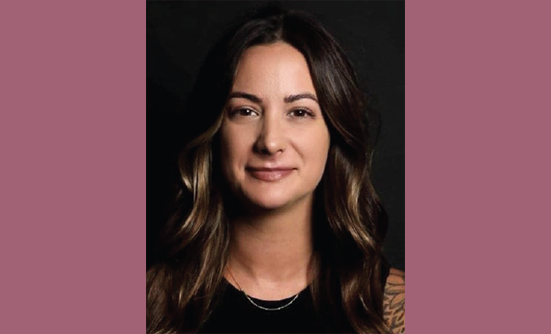When you hear the words “you have breast cancer,” everything else can devolve into a haze. It can be hard to see beyond your next treatment or appointment. You probably don’t even know what questions to ask about post-mastectomy side effects, and how they can affect your quality of life in the future.
Of the people I’ve counseled as a clinical psychologist, none were aware that they may have chest numbness as a common side effect of this lifesaving surgery. And if they were informed by their oncology care team, it was likely presented as one of the many scary side effects, without explicit discussion of the lasting impact on quality of life.
Physical Sensation
When you have chest numbness, you no longer have physical sensation in nearly 10% of your body, which can be very disorienting.
For women, sensation in the chest is also associated with sexuality, and breasts may be a large part of what makes you feel feminine. Most important, sensation in the chest area can contribute to your sense of self.
Breast reconstruction can make your chest look the way it did before your cancer diagnosis, but nerve restoration is what may actually help you feel like yourself.
Understanding Post-Mastectomy Numbness
For many women who require or choose mastectomy, their pre-operative appointment with their surgical team is the first opportunity to talk about what their body will look like after cancer. Is a nipple-sparing mastectomy (the nipple, areola, and the breast skin are not removed) an option? Are breast implants or flap reconstruction, or maybe no reconstruction at all, going to provide the most satisfaction in the long-term?
What’s often missing from these conversations, however, is the explanation of what your chest will (or will not) feel like. Chest numbness is common, but it often catches women by surprise during the recovery process. This makes sense, because some nerves are cut as your surgeon removes the cancerous mass. If damaged nerves are not repaired, there is no longer a neurological connection from the skin on your chest to your brain.
Your brain is wired to keep you safe, which is one of the primary reasons why a lack of sensation can be so troublesome. If you have ever sprained an ankle, your brain focuses on the area that’s hurt, not just physically but mentally and emotionally as well. So, if a part of the body feels off, has been injured, or has been removed, your brain will focus intensively on that area.
Breast Neurotization
It is hard to be prepared for the impact that a lack of chest sensation will have on your life. Hugs don’t have that same enveloping power. You can’t feel a baby’s head nuzzling into your breast. Psychologically, this can be an unsettling experience. One of my clients said that it felt as if her chest had been deleted.
Numbness, however, may not have to be permanent. There are surgical techniques that could potentially restore sensation to that area.
Breast neurotization is a nerve-repair procedure in which a plastic reconstructive surgeon reconnects nerves that were cut during a mastectomy, by using a nerve graft, which potentially can restore sensation to the area over time.1 Surgeons who offer breast neurotization surgery report that women typically begin to regain sensation several months after surgery, and that the feelings can continue to be restored for up to 2 years.2
Pre-operative consultations can be a whirlwind, but articulating your hopes for sensation to your oncology care team can help ensure that you will have the best physical and psychological recovery.
Life After Your Mastectomy
The days after your mastectomy will likely be a haze, and that’s okay. Be kind to yourself and take time to grieve your experiences.
Be patient with your recovery; nerves regrow slowly, at a rate of about 1 millimeter per day.3 If your surgical team uses nerve grafts or other surgical techniques with the intent of restoring sensation in your chest area, it may take months to become a reality.
I highly recommend working with a mental health professional to help you process the trauma of your cancer diagnosis and the impact of mastectomy. A therapist can provide a safe space to talk about your hopes and fears, and he or she can also share skills and strategies to help you navigate the recovery process.
Even if your mastectomy was years ago, you may still have options to restore sensation to your chest. Breast neurotization has evolved significantly in recent years and can be performed during a reconstruction or revision procedure.
No Shame
Some survivors express a sense of shame for being bothered by chest numbness after mastectomy. They think that they should just feel grateful to be alive—a lack of sensation is insignificant compared with being cancer-free. But know that it is okay to want to be able to feel and experience a full life after your breast cancer diagnosis.
Tips for Coping with Chest Numbness
There are many physical and psychological ways to prepare for the possibility of chest numbness ahead of your mastectomy and to cope with the lack of sensation. Here are some tips you may find helpful.
- Have honest conversations with your care team ahead of your mastectomy
- Ask your care team if breast neurotization is an option
- Work with a therapist to process the grief and trauma you may be experiencing throughout your breast cancer diagnosis; if time allows, aim to have a few sessions and build rapport with your therapist ahead of your mastectomy
- Mindfulness techniques may help you connect to the areas of your body where you do have sensation. Mindfulness means paying attention purposefully, which may be troublesome for those who have a lack of sensation or pain
- Mindfulness helps us to reconnect with the present and with our bodies
- Some of my favorite techniques include progressive muscle relaxation, guided imagery, and diaphragmatic breathing.
References
- Hamilton KL, Kania KE, Spiegel AJ. Post-mastectomy sensory recovery and restoration. Gland Surgery. 2021;10(1):494-497. doi:10.21037/gs.2020.03.22.
- Yano K, Hosokawa K, Takagi S, et al. Breast reconstruction using the sensate latissimus dorsi musculocutaneous flap. Plastic and Reconstructive Surgery. 2002;109(6):1897-1902; discussion 1903. https://europepmc.org/article/med/11994590.
- Grinsell D, Keating CP. Peripheral nerve reconstruction after injury: a review of clinical and experimental therapies. BioMed Research International. 2014;2014:698256. www.hindawi.com/journals/bmri/2014/698256/.
Key Points
- What’s often missing from the pre-operative conversations is the explanation of what your chest will (or will not) feel like
- Chest numbness after mastectomy is common, but it often catches women by surprise during the recovery process
- When you have chest numbness, you no longer have physical sensation in nearly 10% of your body
- If damaged nerves are not repaired after surgery, there is no longer a neurological connection from the skin on your chest to your brain
- Breast neurotization is a nerve-repair procedure which reconnects nerves cut during a mastectomy, restoring sensation to that area in several months
- Nerves regrow slowly, at a rate of about 1 millimeter per day
Patient Resources
American Cancer Society
www.cancer.org/cancer/breast-cancer/reconstruction-surgery/what-to-expect-after-breast-reconstruction-surgery.html
National Cancer Institute
www.cancer.gov/about-cancer/treatment/clinical-trials/search/v?id=NCI-2020-07516
Resensation
www.resensation.com
The Institute for Advanced Reconstruction
www.advancedreconstruction.com/














